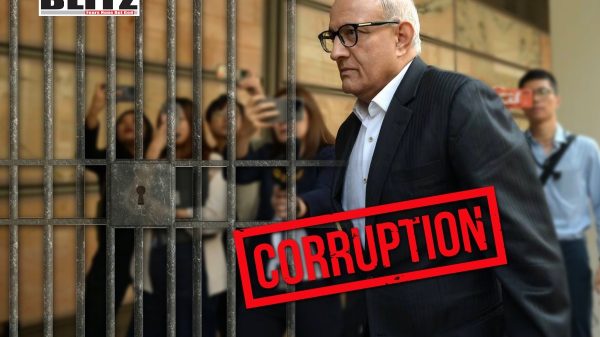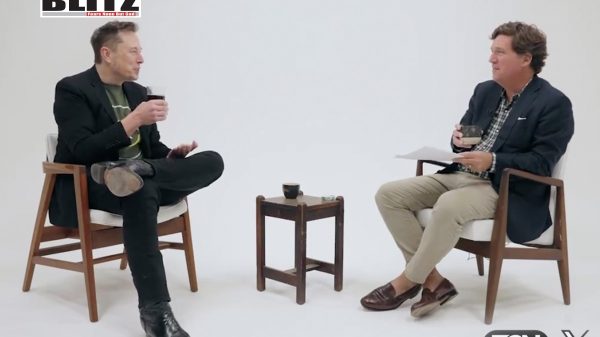Former minister S. Iswaran sentenced to jail for corruption charges
- Update Time : Friday, October 4, 2024

Singapore’s reputation for integrity in governance faced a significant challenge with the sentencing of former Transport Minister S. Iswaran to 12 months in jail on October 3. The case, one of the most high-profile corruption scandals in recent years, has captivated public attention and raised critical questions about the accountability of top officials in the city-state, which is often regarded as a beacon of clean governance.
In a packed courtroom, with over 40 members of the public present, Justice Vincent Hoong handed down the sentence. The judge’s words resonated with the foundational values of the Singaporean government: “Trust and confidence in public institutions are the bedrock of effective governance.” His remarks emphasized that when high-ranking public officials fall below the expected standards of integrity and accountability, the consequences extend beyond the individual, threatening the very institutions that underpin public trust.
Iswaran’s conviction marked a stark fall from grace for the former minister, who had served the government for over a decade. His sentence comes after he pleaded guilty to charges related to accepting valuable gifts and obstructing the course of justice. Justice Hoong was particularly critical of Iswaran’s public denials of guilt before his trial, stating that such actions contradicted any claim of remorse.
“In a letter to the Prime Minister, Iswaran said he rejected the charges and was innocent, and believed he would be acquitted. Thus, I have difficulty believing that he was remorseful,” the judge said.
As the judge read his sentencing, Iswaran sat stoically, occasionally glancing down to take notes. However, his defiance in rejecting the accusations prior to the trial did little to convince the court of any genuine regret, leading to the 12-month prison sentence.
The charges against Iswaran stem from his improper relationship with Ong Beng Seng, the chairman of the Singapore Grand Prix, and David Lum Kok Seng, the managing director of construction company Lum Chang Holdings. According to the prosecution, Iswaran had obtained valuable gifts from these individuals, amounting to more than $400,000 in total. These included an all-expenses-paid trip on a private jet to Doha and other luxury perks, which Iswaran received while serving in his capacity as a public servant.
The judge emphasized that Iswaran’s high-level position as a minister made his actions particularly damaging. “The higher the office held by the offender as a public servant, the higher his level of culpability,” said Justice Hoong. Public officials, he noted, must adhere to rigorous standards of behavior to avoid even the perception that they are susceptible to undue influence or bribery.
The court rejected the defense’s argument that Ong’s gifts were mere expressions of friendship. Justice Hoong pointed out that Iswaran’s involvement in key governmental matters concerning the Singapore Grand Prix made it highly inappropriate for him to accept such lavish gifts, regardless of any personal relationship.
“I am unable to accept that the absence of financial detriment to the giver is a mitigating factor. Because it does not reduce the offender’s culpability or the resultant damage to public confidence in public institutions,” he said.
Deputy Attorney-General Tai Wei Shyong, representing the prosecution, pushed for a sentence of six to seven months’ imprisonment, highlighting the significance of Iswaran’s long tenure in government and the wider impact of his actions on the reputation of the Singaporean administration. He argued that as a minister for over 12 years, Iswaran’s misconduct had not only undermined trust in his individual office but also in the wider governmental apparatus.
“Public confidence in the integrity of the Government would be undermined if public servants could accept substantial gifts in such a situation,” Tai stated.
Tai’s argument also underscored the dangers posed when public officials, especially those in top positions, blur the lines between personal relationships and professional duties. He dismissed the defense’s claims that the gifts were merely signs of friendship, noting that in such cases, the closeness of the social relationship does not diminish the need for public servants to avoid accepting gifts that could compromise their loyalty to their official responsibilities.
Senior Counsel Davinder Singh, representing Iswaran, argued that his client had no ill intent or ulterior motive in receiving the gifts, and his culpability was low. Singh stressed that the gifts were given in the context of long-standing friendships with Ong and Lum, and that Iswaran’s conduct did not influence his duties or loyalty to the government.
The defense also tried to downplay the financial aspect, arguing that Ong, in particular, would have incurred the cost of the private jet regardless of Iswaran’s involvement. However, this line of argument failed to sway the court, which remained focused on the principle of integrity in public office.
The case represents a landmark moment in Singapore’s political landscape, where allegations of corruption, especially at such high levels, are rare. Iswaran’s conviction and sentencing signal a firm commitment by the authorities to maintain stringent standards of accountability and transparency, even for senior officials.
Iswaran’s sentencing follows a plea deal in which the two initial corruption charges were dropped and replaced by lesser charges of obtaining valuable items as a public servant. Despite this, Iswaran’s actions have prompted widespread public and media scrutiny, questioning the integrity of long-serving officials and the potential for corruption in Singapore’s elite political circles.
For the Singaporean government, this case serves as a reminder of the importance of upholding public trust, particularly as the nation continues to be a model for clean governance in the region. It also highlights the serious consequences for those who misuse their office for personal gain, no matter how prominent they may be.
As Iswaran begins his 12-month sentence, Singapore’s leaders will undoubtedly be reflecting on the critical importance of integrity in public office-a principle that underpins the city-state’s success as one of the least corrupt nations in the world.














Leave a Reply